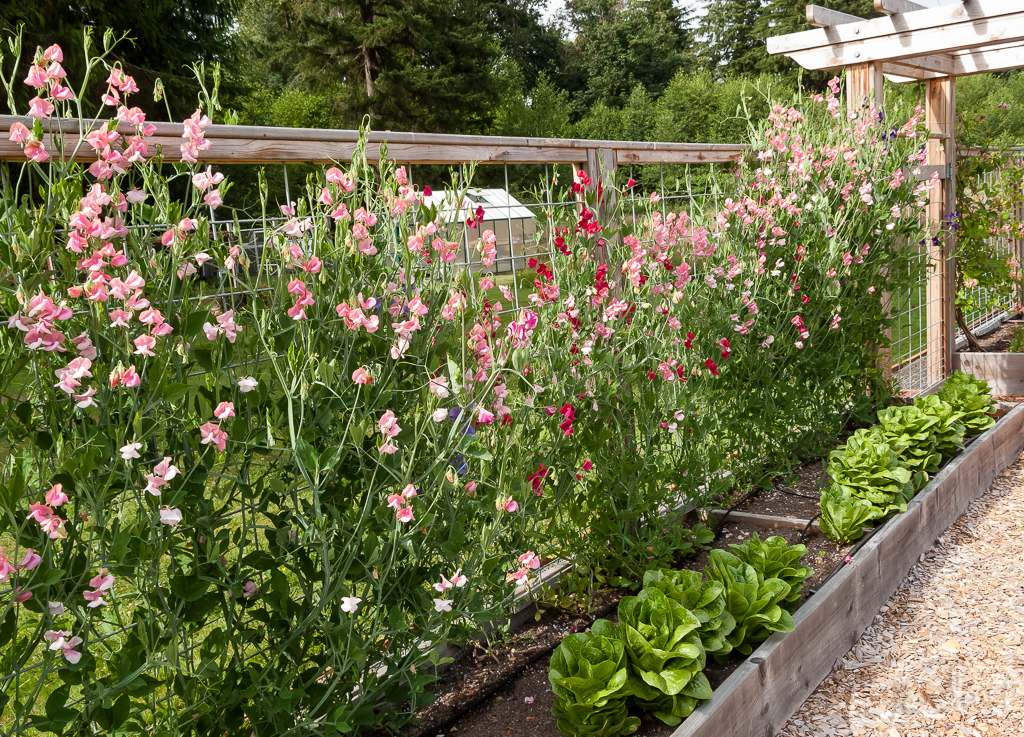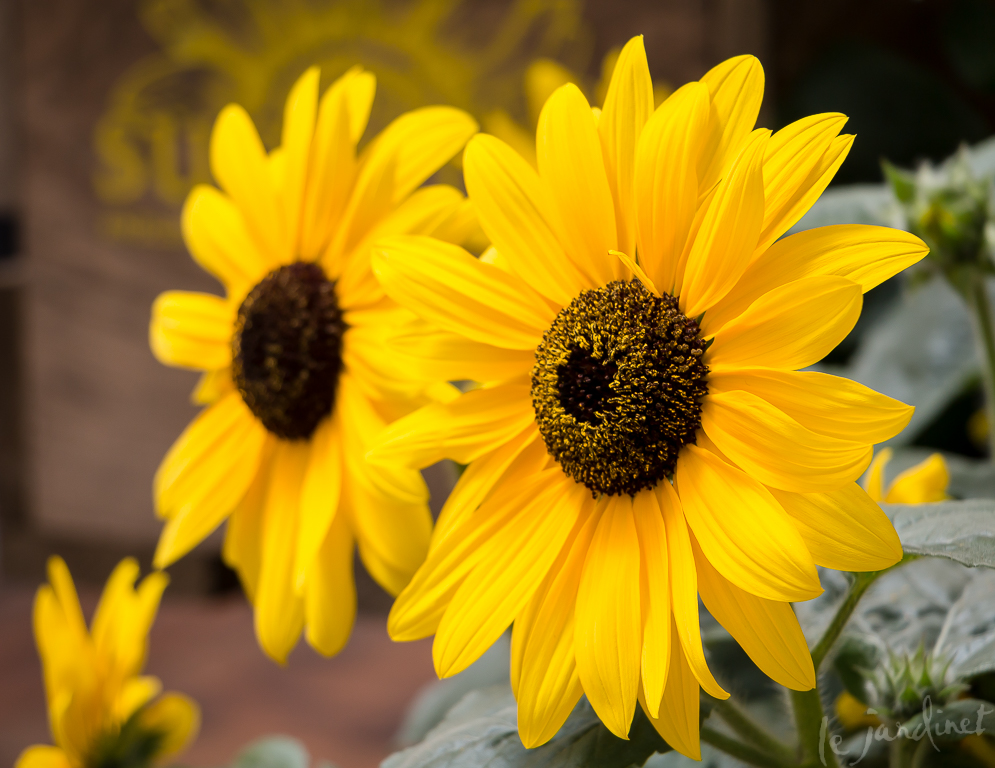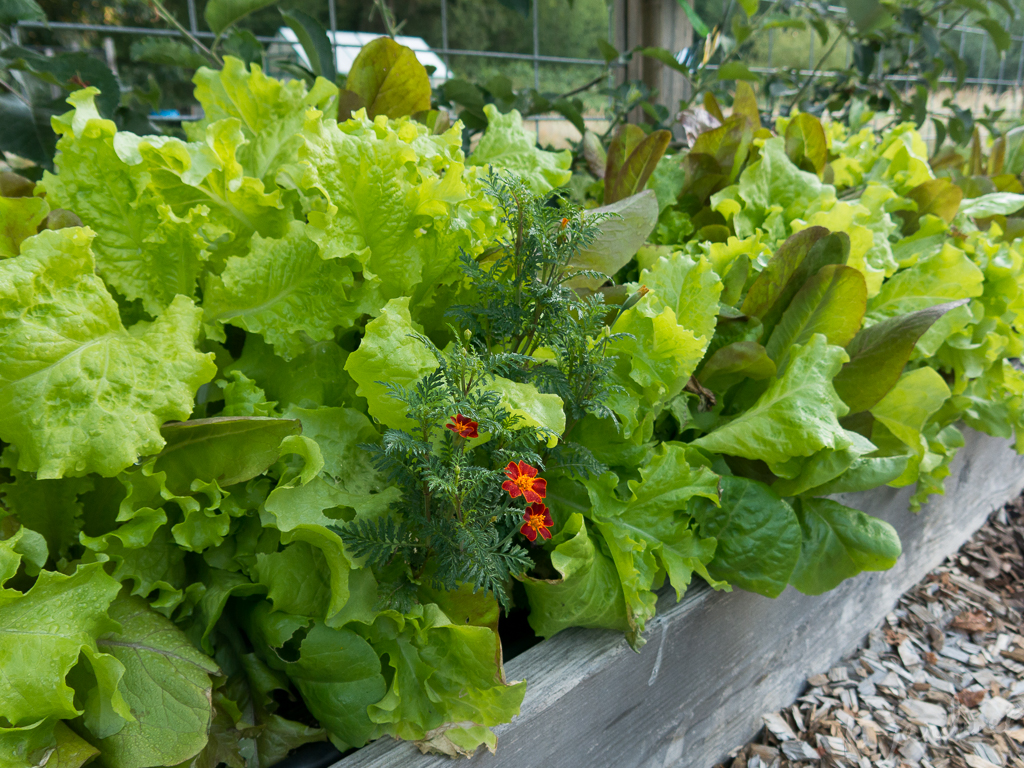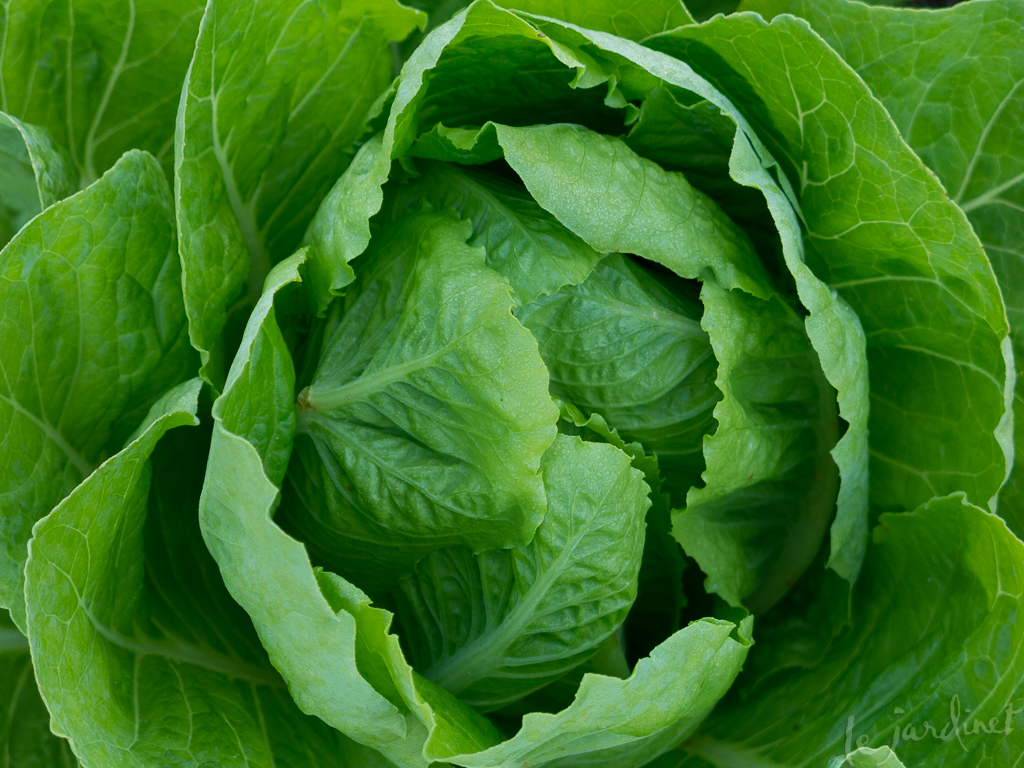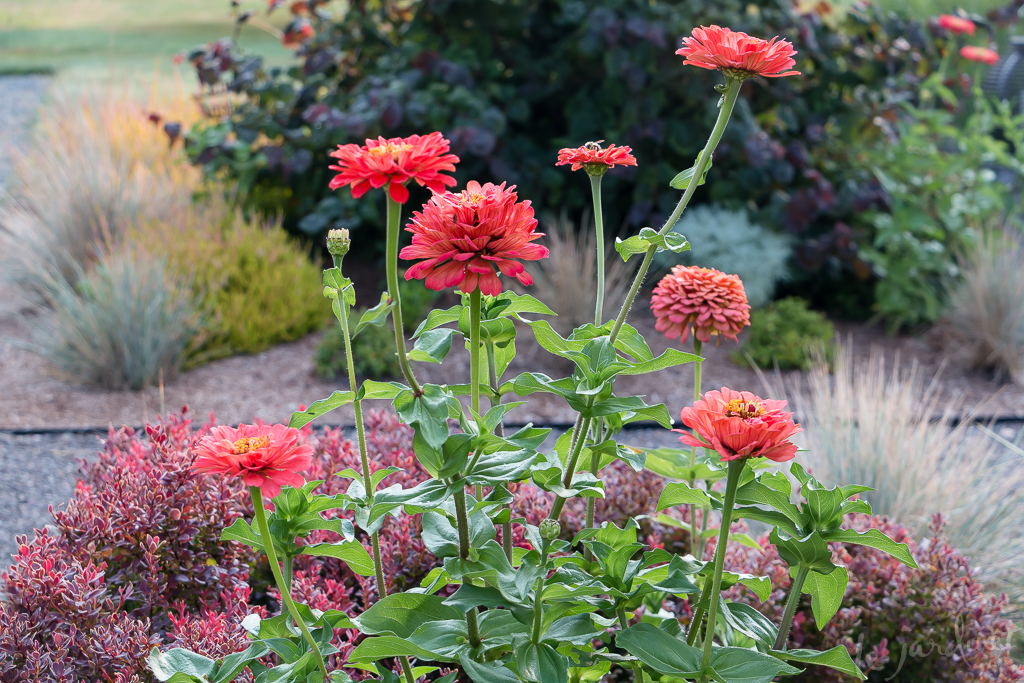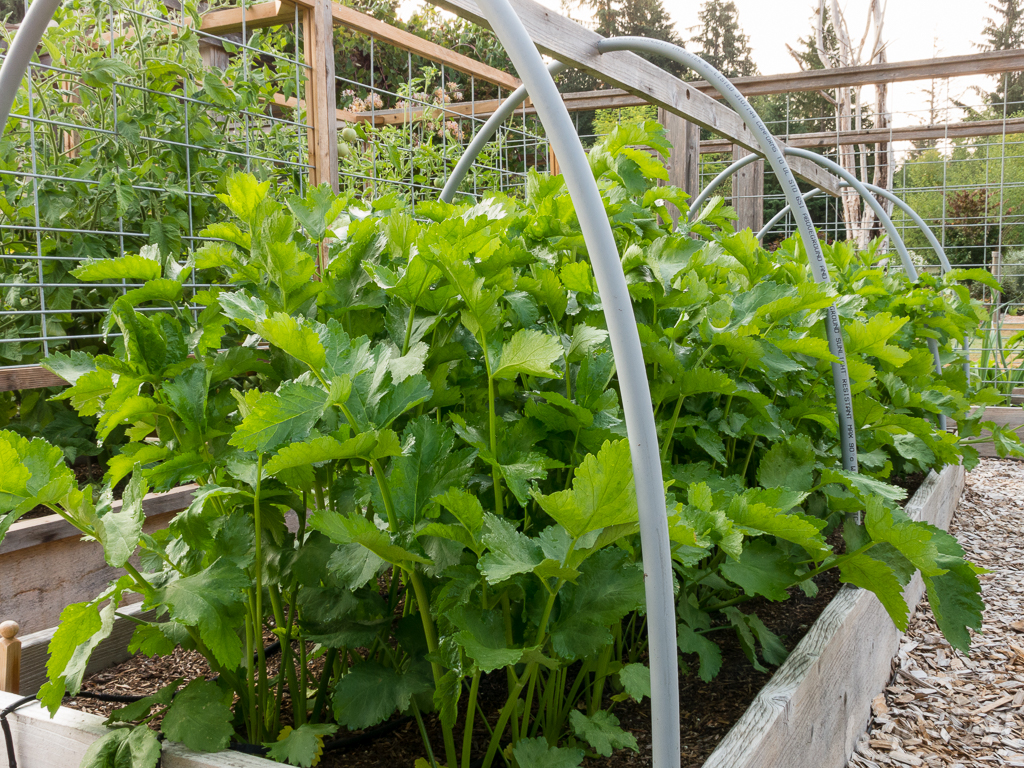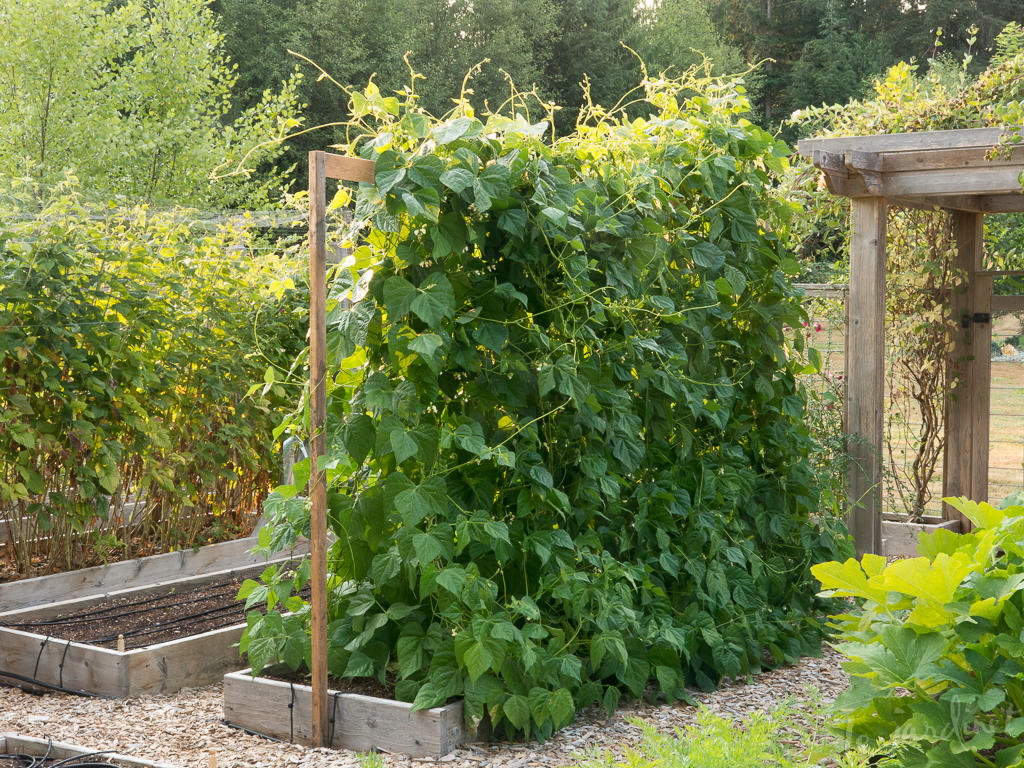Seed Selection Made Easy
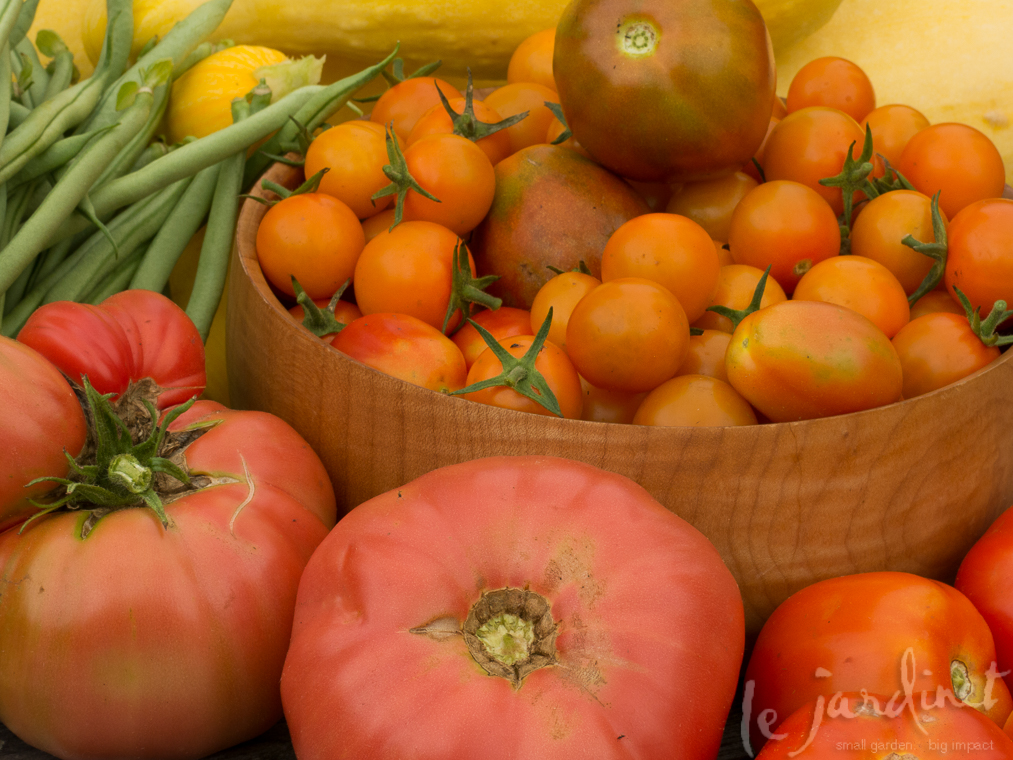
It's still a bit early to start sowing seeds here in Seattle – but it's not too early to order them! Looking out of my office at the still snow-covered garden, I need a promise of spring, and poring over seed catalogs with tempting images of juicy vegetables and a rainbow of flowers gives me just that.
Some seeds are better sown directly into the soil (this is called direct sowing and the packet will tell you if the seeds prefer this). Others can be started indoors on a bright windowsill or under grow lights and transplanted into the garden later. Again every seed packet will tell you the temperature that the seed will need to germinate as well as the outdoor temperatures that are needed before you can safely transplant them.
I've always been a "list" person. Each day I write down all the things I want to accomplish and take great satisfaction checking them off one by one. If I do something that wasn't on the list – I add it – just so I can cross it out again!! (Anyone else guilty of that?) That being said, here are some spring seed-starting lists for you.
Windowsill Gardening – Easy Seeds
No fancy lights or heat mats needed for these, just a bright windowsill (turn the seeds daily once they emerge though)
Mesclun, cut-and-come-again type lettuce
Spinach – try baby leaf for summer salads and some of the larger leaf varieties for later in the season
Easiest Seeds for Beginners and Kids
Radish – direct sow these big seeds for a fast harvest
Nasturtium – big seeds that can be started indoors or direct sown
Sunflowers – big seeds – easy for little fingers
Beans – big seeds that grow bigger than the kids!
Seeds that will Save you Money
While my main reasons for growing my own veggies include superior flavor, supreme freshness, and access to unusual varieties, it also makes sense to grow a few things that otherwise would be expensive to buy either as plants or as harvested produce at the store.
Basil – I grow about 24 plants every year; enough to give a few away yet plenty to keep us in caprese salads and pesto all summer and several bags of frozen basil ice cubes to add to winter dishes.
Mesclun – how often have you thrown half a bag of mixed salad leaves away? Never again when you grow your own cut-and-come-again mix. Plus the flavor is so much better
Tomatoes – if you grow lots of tomatoes and have plenty of indoor or greenhouse space, then growing from seed makes sense as you'll be able to grow those heirloom and fancy varieties that cost a fortune at the grocery store
Bulb fennel – this can cost as much as $5/head st the grocery store!
Parsnips – still not as popular in the USA as the UK – and therefore overpriced. They need a cold snap to sweeten up so think of these as winter veggies, not for summer harvest
Parsley – if you like adding this to winter dishes, plan ahead. Grow several plants, harvest in late summer, chop finely, and freeze in 1/4cup amounts.
My Favorite Veggie Varieties for the PNW from Seed
Corn – Avalon (white, super sweet, good yield)
Beans – Fortex (round, non stringy, high yield), Helda (flat)
Beet – Red Ace (reliable, good for pickling, roasting or steaming), Flat of Egypt, Detroit Dark Red,
Carrots – Nantes, Purple Dragon
Parsnips – Cobham Improved, Gladiator
Romaine lettuce – Jericho (doesn't bolt)
My Favorite Deer-Resistant Annuals from Seed
Zinnia – Benary's Giant Coral were stunning last year
Cleome – easy to grow.
Snapdragons – Some great seed companies listed here. 2019 is the Year of the Snapdragon for the National Garden Bureau! Enter to win BIG!!
Seeds for Dry Winter Storage and Fresh Eating
Winter squash – My favorite is Butternut
Leeks – Giant Musselburgh did well from seed.
Carrots – Nantes holds well in the ground (Purple Dragon does not)
Parsnips
Plan Ahead
Always leave a little space to try something new each year too. Last year I grew red quinoa for example. It was so pretty – but I admit that I found harvesting way too much work and not worth the effort. This year I'm tempted to try tomatillo, and cucamelons.
Certainly there are gazillion more options but I buy some things as sets (e.g. onions) or small plants (tomatoes, sugar snap peas, eggplant, peppers (bell, jalapeno, assorted chili type) because I need only a few and/or would like several different varieties. We don't eat a lot of brassicas or potatoes – so I don't grow them anymore. As much as we like summer squash we always produce far more than we need and since they don't store well I've stopped growing them, dedicating that space to produce I can freeze or can such as extra tomatoes and corn. Our Seattle climate isn't ideal for melons and since all my vegetable gardening is within a deer enclosure, I don't want to take up valuable space with pumpkin vines that would be more for decorative purposes than eating (I use butternut squash for my Thanksgiving "pumpkin" pies as well as soups and stews). I also try to make sure that not everything needs harvesting and processing at the same time!!
Finally, share the bounty. If you have room for a few extra plants, take the harvest to your local food bank or share it with your neighbors.
Favorite Books on Growing your Own
The Family Kitchen Garden (Timber Press) – easy to understand, good information on crop rotation plus great ideas to get the kids involved. My most dog-eared veggie book!
The Year-Round Vegetable Gardener by Niki Jabbour (Storey) – great info from a cold winter gardener with tips on cold frames, succession cropping and more
Growing Vegetables – west of the Cascades by Steve Solomon (Sasquatch) – meaty, thorough, science-based guide for organic growing.
Vegetable Gardening in the PNW by Lorene Edwards Forkner (Timber Press) – well organized with month by month information
Favorite Seed Companies
Renees Garden Seeds – especially their sweet peas!
Territorial – my #1 go-to for organic veggie seeds and onion sets
Botanical Interest – their Mesclun mix is still one of my favorites
Seeds of Change – great selection
Baker Creek – specialty heirloom varieties
Johnny Seeds – often has varieties others don't
Related Blog Posts you Might Like
New (and newly discovered) Deer-Resistant Annuals
Disclaimer: the book links are affiliate links. If you choose to order from them I'll earn a few pennies towards my seed fetish.
